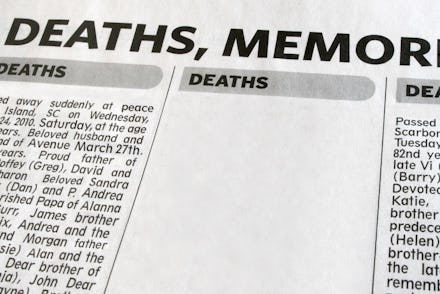Father Uses Daughter’s Obituary to Make a Powerful Statement About Mental Health

When Kathleen Schoener — Katie, to her friends and family — died by suicide earlier this month, her grieving father honored her with a powerful obituary in their local paper. In it, he delivered an important message about mental health that everyone should see.
In an obituary for Katie that was published in the Scranton Times, Ed Schoener wrote about his daughter's accomplishments, and pushed back against the idea that people who have mental illnesses should be defined by those illnesses.
"Kathleen 'Katie' Marie Shoener, 29, fought bipolar disorder since 2005, but she finally lost the battle on Wednesday to suicide in Lewis Center, Ohio," Schoener wrote. Then he explained that Katie's illness is not what she should be known for:
So often people who have a mental illness are known as their illness. People say that "she is bipolar" or "he is schizophrenic." Over the coming days as you talk to people about this, please do not use that phrase. People who have cancer are not cancer, those with diabetes are not diabetes. Katie was not bipolar - she had an illness called bipolar disorder - Katie herself was a beautiful child of God. The way we talk about people and their illnesses affects the people themselves and how we treat the illness. In the case of mental illness there is so much fear, ignorance and hurtful attitudes that the people who suffer from mental illness needlessly suffer further. Our society does not provide the resources that are needed to adequately understand and treat mental illness. In Katie's case, she had the best medical care available, she always took the cocktail of medicines that she was prescribed and she did her best to be healthy and manage this illness - and yet - that was not enough. Someday a cure will be found, but until then, we need to support and be compassionate to those with mental illness, every bit as much as we support those who suffer from cancer, heart disease or any other illness.
Schoener hopes that by sharing Katie's story and addressing the stigma surrounding mental health head-on, he will help alleviate the suffering of others.
"God will use this death to help others come out of the shadows. To help people to find a way to talk to each other about this illness," Shoener told the Washington Post. "Katie was not bipolar. She was a wonderful girl who had bipolar disorder."